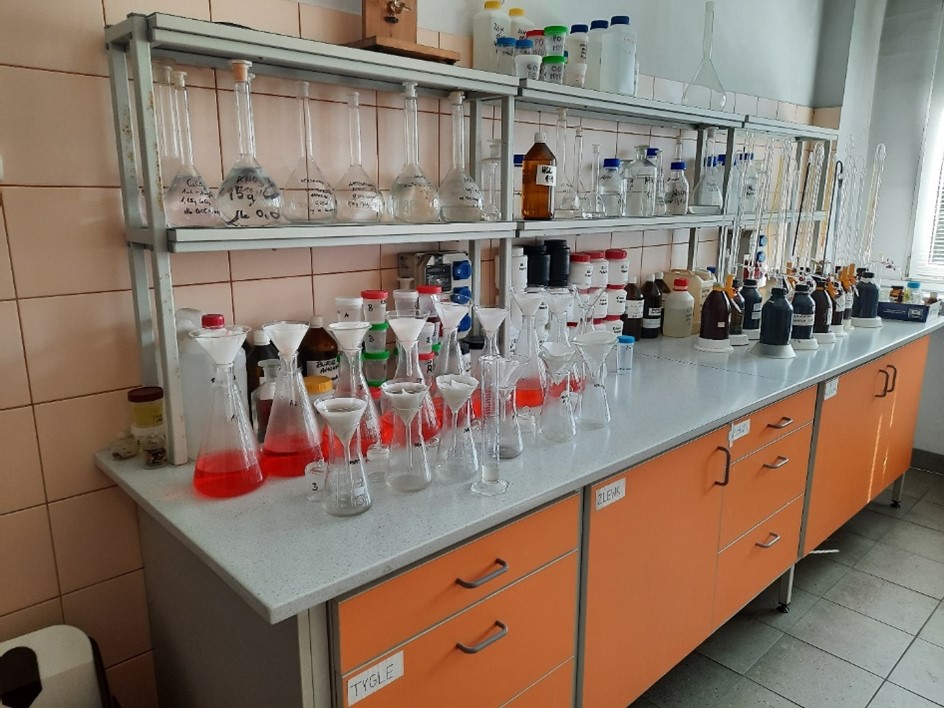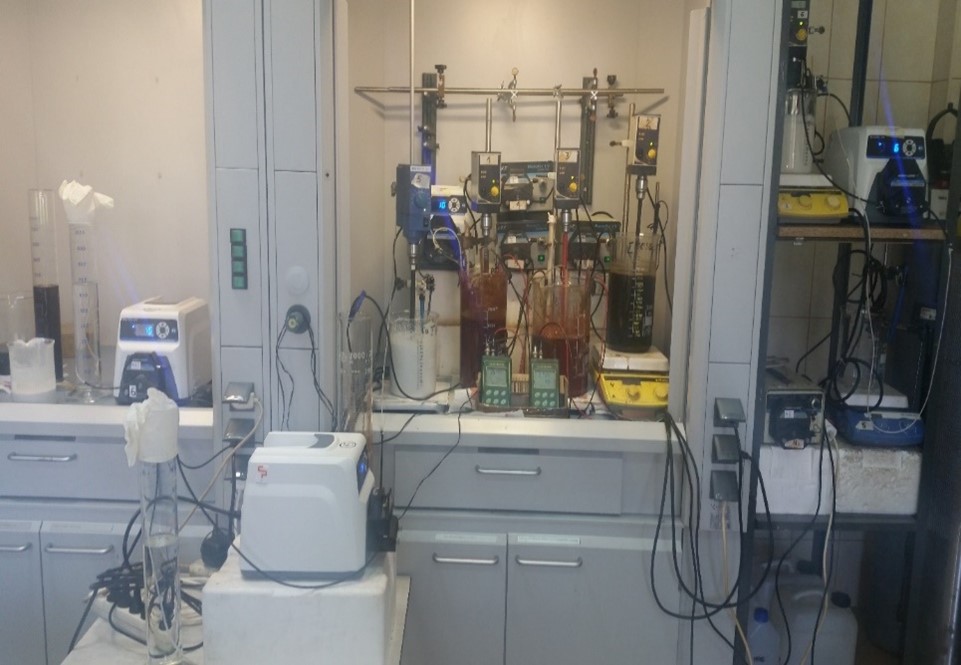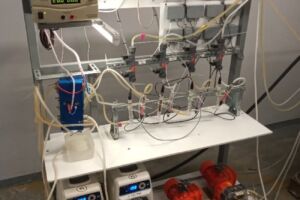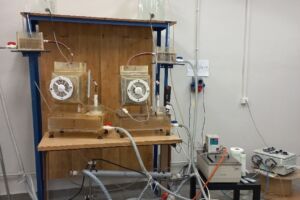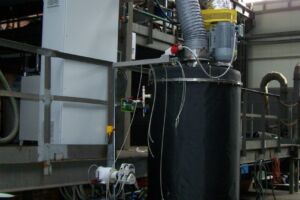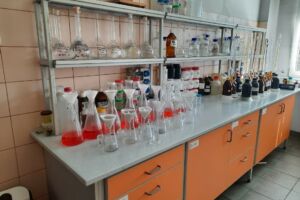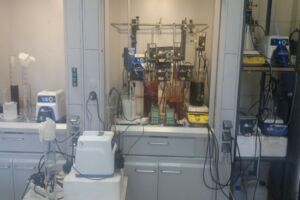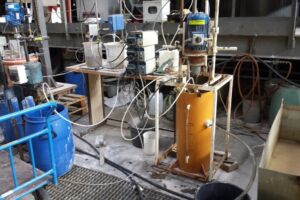Analytical and Technological Laboratory for Water and Wastewater Treatment
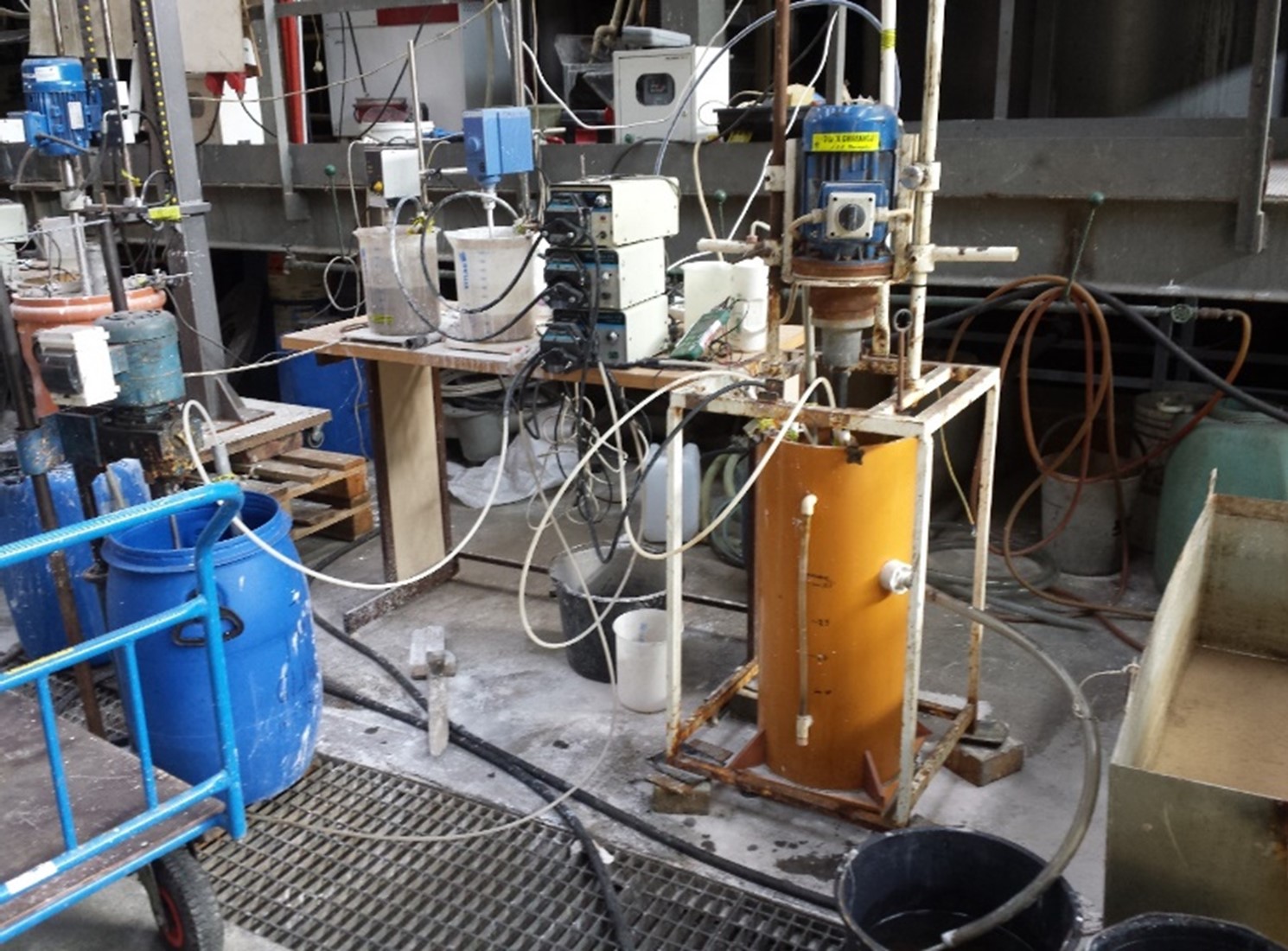
Experienced staff and modern infrastructure
The laboratory’s experience, facilities and equipment predispose it to carry out chemical analyses and solve technological problems related to water and wastewater treatment, including those characterized by high salinity and the presence of pollutants considered particularly harmful to the natural environment.
Laboratory
Laboratory offer
Water and wastewater testing
- Physicochemical analyses of water and wastewater
- Laboratory, large-scale and industrial scale tests in order to develop/select technologies for the treatment of water and industrial wastewater, including desulphurization and defluoridation, based on the following processes
- precipitation (with coagulation, flocculation, sedimentation and filtration)
- ion exchange and sorption
- membrane dialysis, including bipolar
- classic and deep oxidation (ozonation, UV, Fenton)
- carbonization, decarbonization, sulfidation
- Neutralization of acidic, sulphate technological wastewater aimed at the production of gypsum with commercial quality parameters
- Development of cooling water regimes, including those using wastewater to replenish water losses, along with the selection of corrective measures to minimize corrosion and sediment-forming processes
- Evaluation of corrosivity and sedimentation of cooling water in industrial cooling circuits
- Reducing the odour nuisance of industrial process gases
- Research and development of soil phytoremediation processes/principles
- Research and development of waste management and disposal technologies
MODERN EQUIPMENT AND TEST STANDS
Equipment
- Basic analytical laboratory facilities
- Pumps, agitators, shakers, sedimentation tanks, tanks, reactors allowing for research (laboratory and large-scale laboratory) carried out in various schemes and technological systems
- Model systems for conducting research in the field of:
- Wet Desulphurization of Process Gases
- Membrane processes in various configurations
- Development and optimization of cooling water regimes in a model circulating, open refrigeration system with a fan cooler
- Deep oxidation (laboratory ozonator, UV lamps of different wavelengths)
- Clarification, sedimentation, thickening of post-neutralization sludge
Laboratory
Contact
Łukasiewicz Research Network – Institute of Non-Ferrous Metals Analytical and Technological Laboratory of Water and Wastewater Treatment
Sowińskiego 5 street
44-100 Gliwice, POLAND
PhD Ryszard Kurowski
